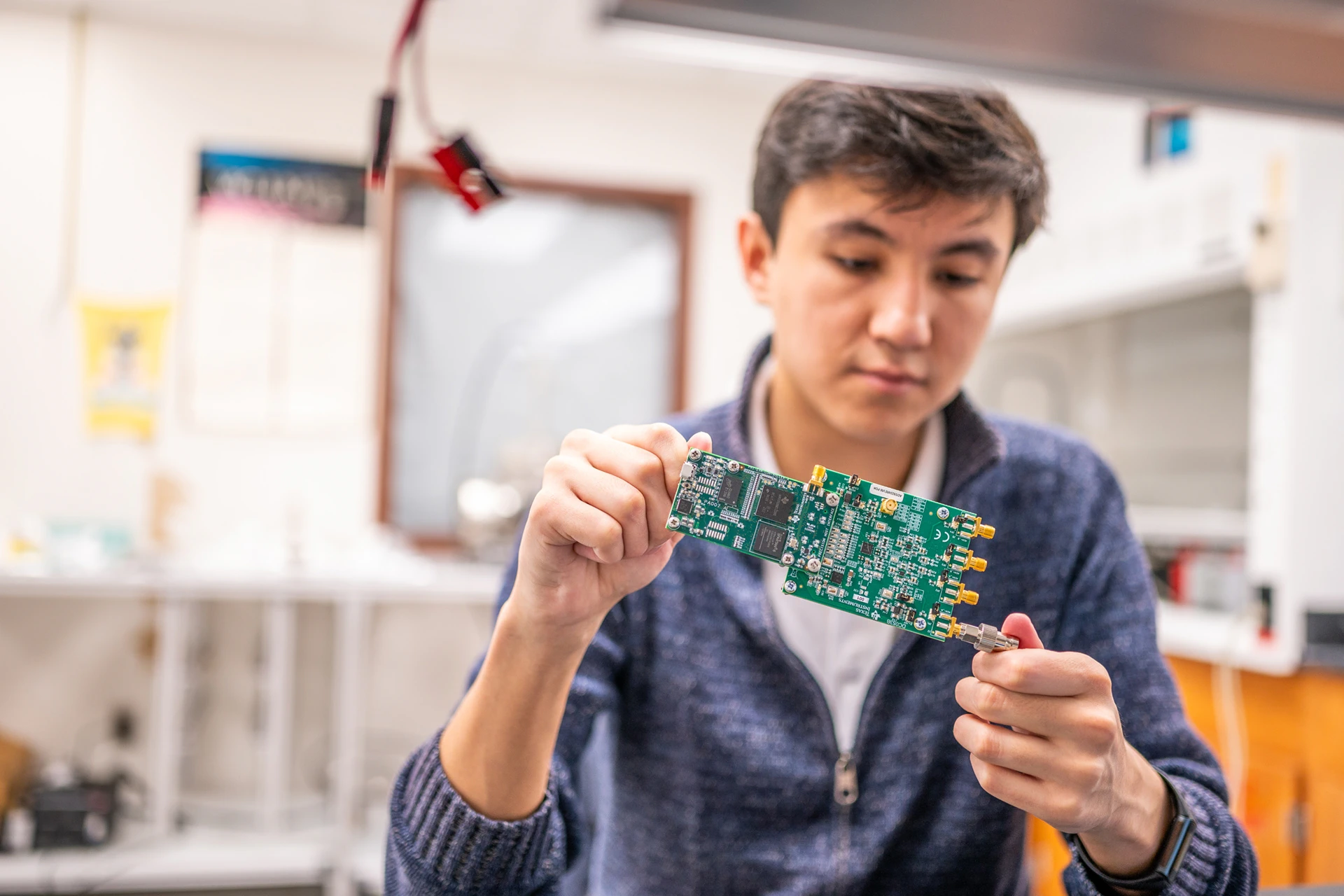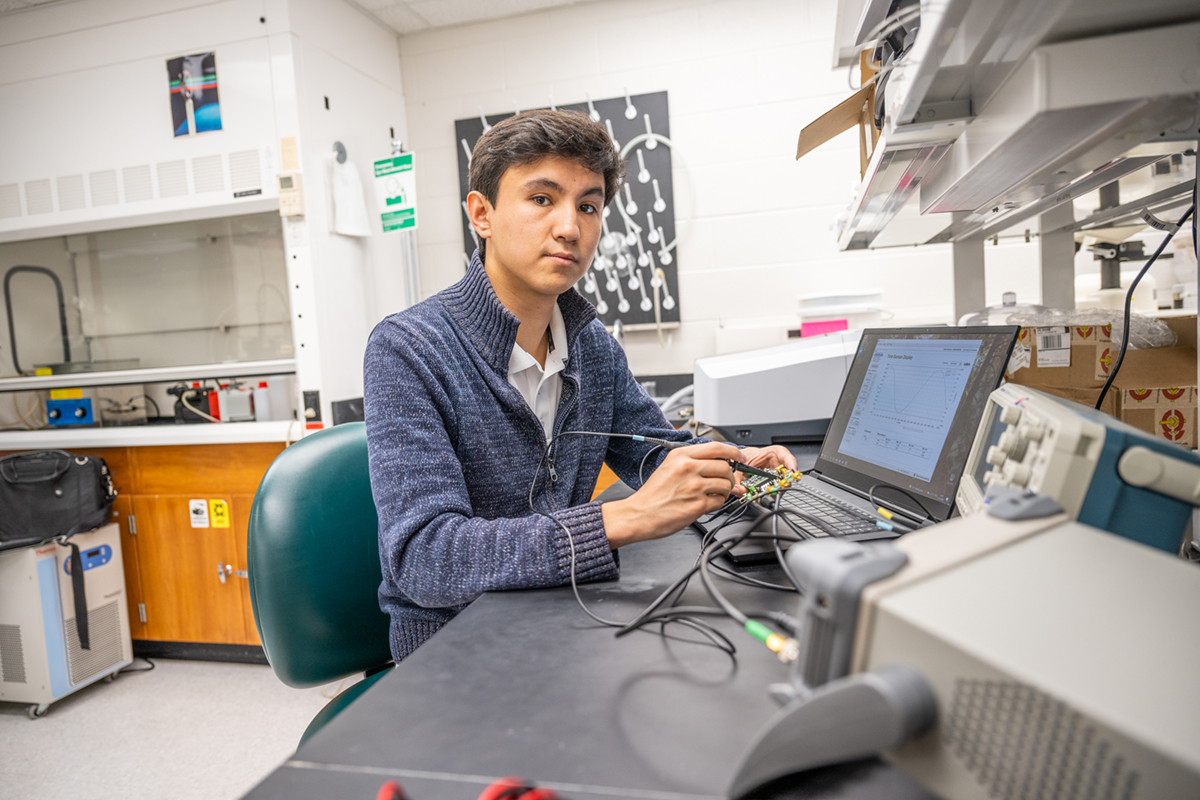Michigan State University will be sending its expertise to space thanks to the development of a new Space Electronics Center. MSU’s College of Engineering and the Facility for Rare Isotope Beams, or FRIB, will be at the forefront of the design and testing of devices and systems for space applications at this new center.
Texas Instruments, or TI, is among the early supporters of the center and has worked closely with the FRIB team on some of its first electronics testing sessions. TI designs and manufactures semiconductors and various integrated circuits to sell to electronics designers and manufacturers globally. It is a leading provider of analog and embedded processing products in high-reliability packaging and has developed integrated circuits for space for more than 60 years.
MSU Foundation Professor John Papapolymerou, who chairs the Department of Electrical and Computer Engineering, said the MSU Space Electronics Center will focus on electronic circuits and systems that are less susceptible to damage from exposure to the ionizing radiation typically present in space.
“With the growing number of commercial space-based communication systems and related applications, such as low-latency, low-cost worldwide internet coverage, we’re interested in the holistic design, development and testing of space electronics,” Papapolymerou said. “The strength of our new center will rely on the strong interdisciplinary engineering and science talent among our faculty, students and researchers, and the unparalleled testing facilities at FRIB. Plus, we will add the knowledge and expertise of our industrial member companies like TI.”

